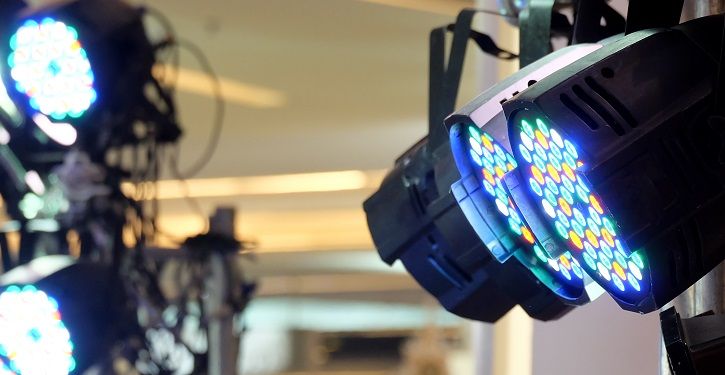Fighting Diabetic Vision Loss with an LED Sleep Mask
Ultra-efficient, bright, and versatile, LEDs have changed various industries. A study recently deemed the promising new device "ready for large clinical trials."

Bright and ultra efficient, light-emitting diodes (LEDs) have altered the way a whole host of electronics are made and operate, from televisions to car headlights. Now, preliminary findings indicate that wearing a novel sleep mask containing them may help to reduce retinal thickness in patients with diabetic macular edema (DME).
A team led by J.N. Sahni, MD, of St. Paul’s Eye Unit, Royal Liverpool University Hospitals NHS Trust made the conclusion after evaluating the mask in 60 study participants.
The study compared the effect of the mask in a DME group with that in two groups of healthy volunteers, one group age 18—30 years, and another age 50–70 years. Participants wore the mask, which has a luminance of 80 cd/m2 and a wavelength of 504 nm, every night for eight hours or fewer for three months. The study also included a one-month recovery period after three months of active use.
In addition to measuring change from baseline retinal thickness with optical coherence tomography (OCT), the Liverpool team also measured change from baseline values in depression, psychological well-being, sleep, and visual acuity as well as in the number of lapses and response time required for psychomotor vigilance tasks.
The researchers found that, after three months of mask use, 67% of DME-affected eyes had a reduction or resolution of cysts in the OCT subfield with maximal pathology. They also noted that, by study end, thinning was greater in those with greater baseline retinal thickness than in those with less baseline retinal thickness (P < 0.001 for central subfield; P < 0.05 for maximal).
However, sleep disturbances and an inability to tolerate the mask led to study withdrawal in eight participants, or 13%, during the first month of the study, and in 16 participants, or 27%, during the first three months of the study. Nevertheless, the team concluded that use of the mask was acceptable for most study participants except for some healthy volunteers.
Moreover, after three months of using the mask, psychomotor vigilance task performance worsened in the group of healthy younger volunteers, and mean psychological well-being worsened in all study groups. However, the researchers reported that their study revealed no major safety issues associated with use of the mask apart from a minor reduction in daytime alertness and a moderate effect on psychological well-being.
“Preliminary data suggest a beneficial effect on retinal thickness in DMO,” the team concluded, so “This novel therapeutic approach is ready for large clinical trials.”
The published report of the study, “Safety and acceptability of an organic light-emitting diode sleep mask as a potential therapy for retinal disease,” appears in the January 2017 issue of Eye.
Healthy Bottom Line: The Trouble With SDOH Programs and the Secret to Improving Them
September 28th 2021Several problems exist with current programs that address social determinants of health (SDOH); however, a new social model aims to combat these issues and improve the programs’ effectiveness.